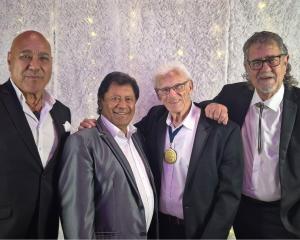A near-capacity crowd came to hear three works composed within the last century, on Saturday. The performance by the Dunedin Symphony Orchestra under the baton of Mark Taddei was exceptional and accordingly very well received.
The evening opened with John Psathas'Luminous. This soundscape is indeed iridescent, from its earliest tight harmonies, ominous with immediate and enveloping enormity. The orchestra captured its evolving tensions magnificently.
Guest soloist Ilya Gringolts gave an inspired performance of Prokofiev's piquant Violin Concerto No 2 in G minor. This masterpiece explores a range of emotions with dramatic and playful dynamism. From the opening wistful delicacy, Gringolts has perfected the artful stamina of maintaining a strong sense of melodic drive.
His performance of the work's exuberant passages was nothing short of thrilling. His performance style emphasises the value of understatement. The tentative lyricism of the second movement was beautifully executed. The work's highlight is its final movement Allegro, ben marcato. The galloping rhythms and melody were given their head and left the audience spellbound at the finish. Gringolts rewarded the audience with an encore with Menetrier from Enescu's quixotic, angular and charming virtuosic work Impressions d'enfance , composed in 1940.
Sibelius' works invariably suffer from a lack of cohesive thematic material. He tries several approaches, likes them all, but then struggles to pull them together. The Symphony no 2 in G minor is not different. However, what saves Sibelius from never being able to say anything is his exuberant, almost intoxicating, outbursts.
Dunedin Symphony Orchestra showed itself more than equal to mastering these impassioned outbursts. However, its interpretation of Sibelius' oscillations, and languid ostinatos could not overcome their inherent lack of focus.
Nevertheless, all is forgiven, in the final movement unassumingly titled Allegro moderato. The Dunedin Symphony Orchestra exhibited its complete rapport with its life-affirming breadth.
-By Marian Poole












